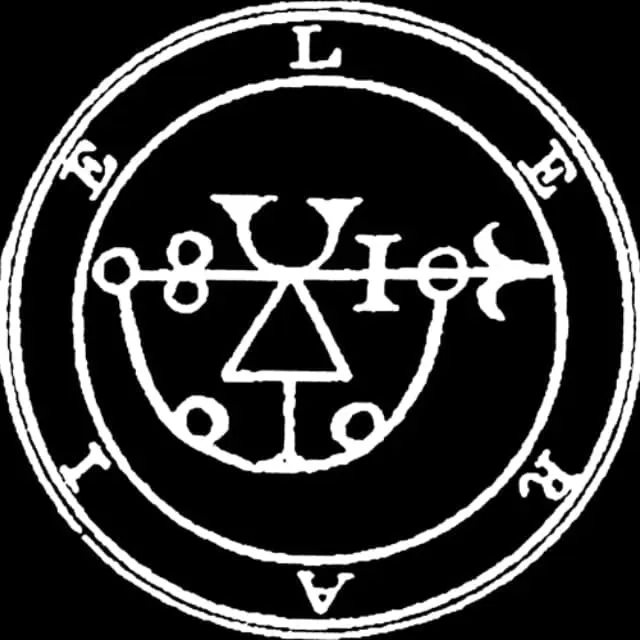So I recently had a long car ride with a person who had some strong views on absolute truth. I am of the opinion that absolute truth needs an arbitrator or some mechanism for consensus for a truth to be an absolute for a group of people.
They kept saying that the lack of absolute truth is the problem with modern society. That god is the only arbiter of absolute truth, and I couldnt get an answer on how we mortals are able to divine such things.
It was real frustrating when they wouldn’t agree that the as a society, we give the justice system the ability to arbitrate truth.
When I told them that I dont think absolute truths exists he told me that was an absolute truth I believed
I have seen a lot of people who claim that an absolute truth exists and I have seen that thought process color their interactions in society. I think this belief system is a cancer on society and that religions are cultivating it.
I think the idea of an absolute truth being able to be uncovered is quite comforting to these people, and for people who do t consider themselves to be religious these religious ideas persist into their life.
Anyway, just thought I would share.
I always strive to see the nuiance in people, believe as little as possible, change my opinions on matters when appropriate, see absolute truth as a mechanism for arbiters to control.
Thoughts?
When I told them that I dont think absolute truths exists he told me that was an absolute truth I believed
Then he wasn’t listening to you. “I don’t think” is not the same as “I am certain.”
The concept of absolute truth is, ironically, the lie that exists at the heart of thiest religion. It provides a comforting certainty to them where they don’t have to do any thinking or work out what their own opinions are on a given subject - they can just claim there is a set of absolute truths and that their particular god is the sole arbiter of that truth.
Yeah it sure does all that.
Absolute truth is hard when there are nuances thatbwould require an infinite amount of words to accurately reflect the accuracy of the situation
Yeah it almost seemed like a long fight with what words mean. We had to talk about qualifiers on what someone says when they say they know something, and which qualifiers I assume when someone says it to me or I to others.
This sounds to me like an example of locking into a solution, then mistaking it for the problem. I think societies are broken in which there is deep disagreement about how to decide what’s true. Recognizing some kind of absolute truth is merely one way to agree on how to decide what’s true.
Moreover, I expect that a person claiming that absolute truth exists means something more like there is only one reliable source of truth or way to decide truth. Some choose reason and some choose their preferred god.
It is natural for humans to want simplicity and absolute truth seems simple. Humans have evolved not to waste energy on deciding what’s true. What an advantage it would be to live as though truth were absolute!
Yeah maybe the problem is consensus. Some believe one others a different one.
To some degree religion encourages that mindset, but it doesn’t create it. In fact, to a notable degree, it’s exactly the opposite - the desire to believe in some absolute truth is a lot of the reason that religion came to exist in the first place. It provides the absolute (nominal) truths that reality does not.
In a way, your friend is right - the lack of absolute truth is at the heart of a lot of the world’s problems. But that’s not it by itself - it’s actually the lack of absolute truth in concert with the desperate need so many people have for it. There are a great many people for whom absolute truth is not necessary - who are perfectly content with the simple fact that reality is murky and complex and largely inexplicable and that our perceptions of it are necessarily subjective. They - we - don’t feel the compelling need your friend obviously has for absolute truth - we get by fine without it.
But for the many who can’t cope with that - who can’t or won’t accept nuance and complexity and inexplicability and subjectivity - yes, the lack of absolute truth is certainly a problem.
The thing is though that the universe isn’t going to change. Absolute truth isn’t going to suddenly make itself manifest because a bunch of conscious animals desperately yearn for it. The universe is going to keep on being unimaginably complex and largely inexplicable, so it’s up to people to come to terms with that.
So as far as that goes, your friend is terribly, terribly wrong.
And in fact, I think that the way in which he’s wrong is actually one of the biggest sources of misery in the world. It’s not just the absence of absolute truth, but the fact that a great many people, in the face of the absence of absolute truth, just go ahead and pick something and pretend that it’s absolute truth anyway, even though it’s self-evidently not.
That does two things immediately - it distances people from sound reason, and it sets them against all of the people who doubt their make-believe absolute truth, and especially those who have chosen to believe some other make-believe absolute truth.
I would say that if one were to dissect virtually any overtly destructive belief system - the sorts of things over which people will and do kill each other - one would find that basic error lurking at its heart.
So yeah - in a way, the lack of absolute truth is a problem. But your friend’s way of approaching that fact is entirely and completely wrong, and is the real problem.
That does two things immediately - it distances people from sound reason, and it sets them against all of the people who doubt their make-believe absolute truth, and especially those who have chosen to believe some other make-believe absolute truth.
Yeah I think this is the heart of the issue, thank you for articulating it better than I could. I only wish I knew of a way to get people out of this deeply dug groove. but perhaps it might not be as good of a thing as I hope.
Once they’re in it, I don’t think there’s a way to get them out, or at least not effectively and productively.
It’s a fundamental psychological need. For whatever reason, they can’t cope with an existence that isn’t anchored in some kind of supposedly absolute truth, so even if one could successfully break through to them and get them to see that their absolute truth is certainly not absolute and likely not even truth, all one would be doing would be tearing the props out from under their lives and leaving them with nothing.
And it’s far more likely that one would fail to get through to them, and just end up alienating them. And, ironically enough, potentially leading them to cling to their make-believe absolute truth just that much more determinedly.
I think it’s just one of those things that’s going to have to be left up to philosophical and sociological evolution. If humanity can survive long enough, I would expect it to become less of an issue over successive generations. And that’s likely about the best we can hope for.
The only absolute truth that I can descern is the mathematical construct of perspective that governs objects apparent size relative to the distance they are from an observer.
Absolute truth may ir may not exist, but humans and all our interpretations are subjective.
… and if God wanted us to know an absolute Truth that would violate our free will, it might also make someone go crazy. Which is the internal reasoning for why faith is required for most religions (externally/critically it’s because non of them make coherent sense).
Slap a “for me” any statement becomes subjective, even your “I don’t believe in absolute truth exists”.
…and what’s more, to go one step further, I don’t think the belief in an absolute truth is as comforting as we pretend it must be. He sounds very uncomfortable to the point it’s bothering him, and interrupting his daily interactions with others.
Sounds like a mental health issue to me… And like many mental health issues, I think it comes as a way to avoid and protect ones self from trauma. In this case the truama of living in an ambiguous world, where there’s not a simple set of answers available.
Religion holds people back, keeps them attached to an easy set of inauthentic beliefs that operate on false ideas of the world… And that’s my subjective viewpoint argued with reason, which for almost all intents and purposes is qualitatively better than operating on faith.
They kept saying that the lack of absolute truth is the problem with modern society. That god is the only arbiter of absolute truth, and I couldnt get an answer on how we mortals are able to divine such things.
I imagine they believe it’s their god, of course, that’s this arbiter of absolute truth.
Couldn’t possibly be any of the other zillions of gods out there. Nope. only their god. Who doesn’t even show his face any more (did he ever?)




